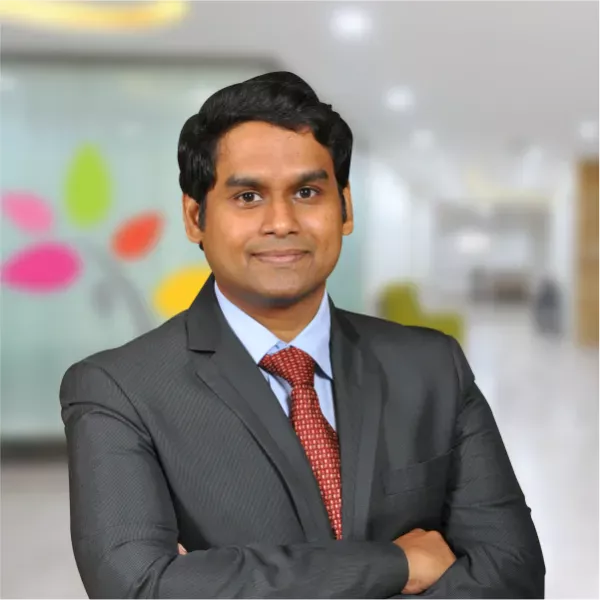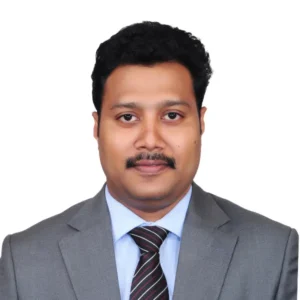Back pain is a common health issue that affects millions of people worldwide. While many cases of back pain can be treated with conservative methods such as medication, physical therapy, or lifestyle changes, some severe cases require surgical intervention to alleviate pain and restore mobility. Spine surgery is a significant step, and knowing when to see a surgeon, understanding the different types of spinal surgery, and how to prepare are essential in making an informed decision. If you’re considering spine surgery, it’s important to consult with the best spine surgeon in chennai to ensure you receive expert care and the most effective treatment.
Best Spine Surgeons in Chennai
Chennai is home to some of the most skilled and renowned spine surgeons in chennai, offering cutting-edge treatments for various spinal conditions. Patients from across the country and abroad seek the expertise of the best spine surgeon in Chennai to ensure optimal care and successful outcomes. Whether you are dealing with herniated discs, spinal stenosis, scoliosis, or other complex issues, the specialists in this city provide tailored solutions to restore your spinal health.
In addition to their expertise, the spine surgery cost in chennai remains competitive, making it an excellent destination for advanced medical care. Below is a list of top spine specialists in chennai, who are recognized for their excellence in diagnosis, treatment, and compassionate care.
Dr. Omer Sheriff
Dr. Omer Sheriff is widely regarded as one of the best spine surgeon in chennai, known for his expertise in minimally invasive and robotic-assisted spine procedures. With over 24+ years of experience, he specializes in treating conditions such as herniated discs, degenerative spine diseases, and spinal stenosis. His innovative methods ensure faster recovery and long-term success.
- Specialties: Minimally Invasive Spine Surgery, Spinal Decompression, Spinal Fusion
- Experience: Over 24+ years in spine and orthopedic surgeries
- Qualifications: MBBS, MS (Orthopedics), Fellowships in Spine Surgery
Dr. Omer Sheriff is committed to providing patient-centered care and is highly recommended for anyone seeking a top-notch best spine surgeon in kolathur.

Dr. Imtiaz Ghani
Dr. Imtiaz Ghani is a distinguished spine and orthopaedic surgeon Internationally trained in spinal deformity correction, minimally invasive spine surgery, and degenerative spine care, he is celebrated for pioneering advanced techniques such as live deformity correction surgeries and computer‑assisted interventions. His fluency in multiple languages (English, Hindi, Tamil, Malayalam, Arabic, Deutsche) ensures effective communication with a diverse patient base.
- Qualifications: MBBS, MS (Orthopaedics), Fellow in Spine Surgery (Germany, Switzerland, Singapore)
- Experience: + 17 years

Dr. L. Bharath
Dr. L. Bharath is a highly experienced and reputed spine specialist in chennai, known for his expertise in both surgical and non-surgical approaches to spinal conditions. He has extensive experience managing scoliosis, spinal fractures treatment, and disc prolapse.
- Qualifications: MBBS, MS (Orthopedics), MCh (Orthopedics)
- Experience: Over 18 years in orthopedic and spine surgeries

Dr. Madan Mohan Reddy
Dr. Madan Mohan Reddy is a leading spine surgeon in chennai, renowned for his expertise in managing complex spinal disorders. His focus includes treating spinal tumors, deformities, and trauma cases. He uses the latest technology for accurate diagnosis and effective treatments.
- Qualifications: MBBS, MS (Orthopedics), Fellowships in Advanced Spine Surgery
- Experience: Over 25+ years in spinal and orthopedic care

Prof. Dr. S. Sundar
Prof. Dr. S. Sundar is one of the spine specialists in chennai, with over 30 years of experience in treating degenerative and congenital spine conditions. He is known for his proficiency in minimally invasive surgical techniques that offer reduced recovery time and better outcomes.
- Qualifications: MBBS, MS (Orthopedics), DNB
- Experience: Over 30+ years in spine care and medical education

Dr. Prakash Selvam
Dr. Prakash Selvam is a distinguished spine surgeon in chennai, recognized for his expertise in treating spinal deformities and trauma. His customized care plans and innovative techniques have helped many patients regain mobility and improve their quality of life.
- Qualifications: MBBS, MS (Orthopedics)
- Experience: Over 15 years in spinal surgery and orthopedics

Dr. Balaji B
Dr. Balaji B is a highly respected orthopedic surgeon in chennai with specialized expertise in spinal care. He currently practices at Medway Hospital. Dr. Balaji has treated a wide range of spinal issues including herniated discs, scoliosis, and degenerative spine disorders.helping patients feel supported and informed. He is known for using the latest minimally invasive surgical techniques to deliver better outcomes with shorter recovery times.
- Qualification: MBBS, MS (Orthopedics)
- Experience: 11+ Years

Dr. S. Vignesh Jayabalan
Dr. S. Vignesh Jayabalan is considered one of the spine surgeons in Chennai, known for his modern techniques and warm bedside manner. He practices at VS Hospital and specializes in conditions like disc prolapse, spinal stenosis, and scoliosis. He focuses on conservative treatments such as physical therapy and bracing before considering surgery. Patients often highlight how easy it is to talk to him, and how much confidence they feel after learning about their condition and options in simple, honest terms.
- Qualification: MBBS, MS (Orthopedics)
- Experience: 15+ Years

Dr. Barani Rathinavelu
Dr. Barani Rathinavelu is a trusted spine specialist in chennai, recognized for his skill in managing both common and complex spinal disorders. He practices at CTS Hospitals. Dr. Barani is known for his clear communication stylehe simplifies complicated medical information so patients and families feel empowered and at ease throughout the treatment process.
- Qualification: MBBS, MS (Ortho), DNB (Ortho)
- Experience: 22+ Years


Find the Right Spine Surgeon in Chennai
- Get a Professional Referral: Start with your general physician or pediatrician. They often refer patients to trusted spine surgeons or specialists based on the condition and patient history.
- Review Credentials and Experience: The best spine surgeon in chennai will typically hold advanced training in spine surgery, neurosurgery, or orthopedics. Look for certifications, years of experience, and sub-specialties in pediatric spine, minimally invasive surgery, or sports-related spine care.
- Assess Hospital Facilities: Modern imaging, robotic-assisted surgery, and rehabilitation services play a big role in successful spine treatment. Choosing a spine surgeon affiliated with a well-equipped hospital improves your chances of a safe and smooth experience.
- Read Patient Reviews: Patient testimonials can provide insights into the surgeon’s communication style, approachability, and follow-up care. Real stories often reveal how supportive and knowledgeable the doctor and team are.
- Schedule a Consultation: Meeting the specialist in person can help you feel more confident. The best spine surgeon in chennai will take the time to explain your condition, discuss treatment options (not just surgery).
Conclusion
Spine surgery is a life-changing procedure that can significantly reduce pain and improve mobility for individuals suffering from chronic back conditions. Consulting with the best spine surgeon in chennai is crucial to ensuring a successful outcome, whether you’re considering traditional or minimally invasive techniques. From understanding when you need surgery to preparing for the procedure and navigating recovery, expert care makes all the difference in achieving long-term relief and a better quality of life. Schedule a consultation with Dr. Omer Sheriff, a highly experienced best spine surgeon in kolathur specializing in trauma, joint replacement, and sports & spine surgery.





